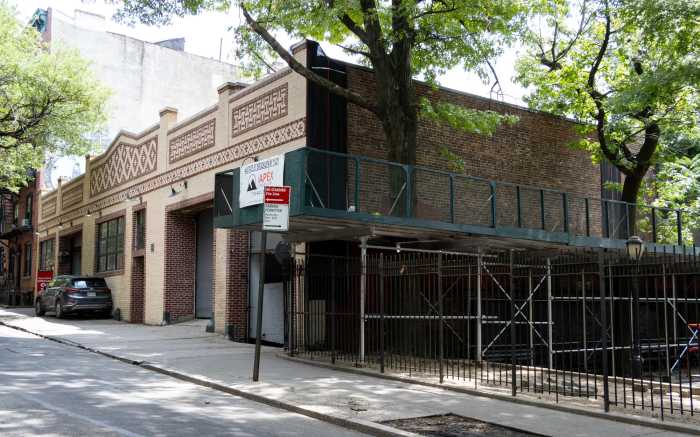It is becoming increasingly clear that developer Bruce Ratner will not be able to build much of the below-market-rate housing that he’s promised to include in Atlantic Yards.
As we report on our front page this week, Ratner’s vow to include 2,250 units of so-called “affordable” housing in his $4-billion mega-project is contingent upon $1.4 billion in taxpayer subsidies — but, there are only $1.6 billion in such federal funds available in the entire state of New York this year.
And experts, including the pro-development president of the Downtown Brooklyn Partnership, Joe Chan, are already sounding the alarm that something’s got to give.
If history is a guide, taxpayers will be doing the giving — but now they won’t be getting affordable housing in return.
The affordable housing units at Atlantic Yards remain the project’s principal carrot in the face of widespread community opposition and egregious misuse of public subsidies to a multi-billion-dollar company.
But there’s a problem with Ratner’s promised units: If he can’t get the tax subsidies from the state, he can walk away from the deal simply by cutting a check for $500,000 — which represents a tiny .014 percent of the company’s $3.6-billion total value — to one of the signatories of his “Community Benefits Agreement.”
Then again, he could also call his enablers in state government and complain of the shortfall in subsidies. Perhaps they will do what they’ve always done — repeatedly at Metrotech and at Atlantic Terminal Mall — and lavish more taxpayer money on another of Ratner’s white elephants.
The shortfall in affordable housing subsidies is no surprise to critics of the project. At the time the city and state were steamrolling Atlantic Yards past reasonable opposition, housing industry analysts were already saying that there simply would not be enough federal subsidies to underwrite the promises that Ratner was making.
But the fox — in this case, an Empire State Development Corporation filled with Ratner cronies — was guarding that chicken coop.
Now, those chickens have come home to roost. An easily foreseen downturn in the financial markets has had the predicted result of raising demand for these federal subsidies as the supply remains flat.
It’s affecting projects as far away as Buffalo and as near as Flatbush Avenue. It will affect Atlantic Yards, too.
























